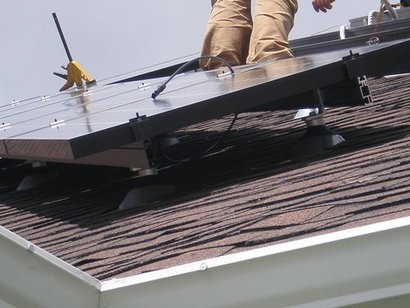
The report by Thema 1, based in Berlin, used the German experience of solar power to project the outlook for solar costs in Britain and its impacts on utilities. Solar is already leading new changes in the power market and will overtake both gas and coal to become the number one global power generation technology in terms of annual installations.
Solar hardware costs have fallen relentlessly over the last decade and Britain will also benefit from a maturing supply chain which will enable fully system costs to converge with those in Germany. Renewable energy has overturned power markets in Germany, a development marked by the decision by E.ON, the country’s largest utility, to focus solely on renewables and energy services. E.ON said its strategy was a result of rising renewable energy competitiveness and investment.
“The notion that solar is expensive is over” said Guido Axmann, co-founder of Thema1.
Report author Gerard Reid, a partner at corporate finance company Alexa Capital, added that solar will become the bedrock of the global power system, despite the road forward being uncharted and difficult. He said that although the British government can now reduce subsidies it should do so gradually.
Once all support is withdrawn, domestic solar will depend on households increasing the amount of solar power they consume, rather than exporting it to the grid. In this way, users will avoid selling surpluses at very low wholesale power prices, while buying less mains electricity at much higher, domestic power prices. As costs fall, batteries could potentially play a significant role by allowing households to consume their own power for several hours after sunset.
The report was written in the context of Britain’s plan to force large-scale solar to compete with onshore wind for a smaller pot of support. It suggests that utilities and policymakers have consistently under-estimated the rate and impact of solar market growth and this could be another surprise in waiting.
For additional information:

